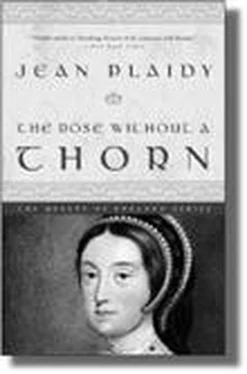Jean Plaidy - Mary, Queen of France - The Story of the Youngest Sister of Henry VIII
Здесь есть возможность читать онлайн «Jean Plaidy - Mary, Queen of France - The Story of the Youngest Sister of Henry VIII» весь текст электронной книги совершенно бесплатно (целиком полную версию без сокращений). В некоторых случаях можно слушать аудио, скачать через торрент в формате fb2 и присутствует краткое содержание. Жанр: Старинная литература, на русском языке. Описание произведения, (предисловие) а так же отзывы посетителей доступны на портале библиотеки ЛибКат.
- Название:Mary, Queen of France: The Story of the Youngest Sister of Henry VIII
- Автор:
- Жанр:
- Год:неизвестен
- ISBN:нет данных
- Рейтинг книги:4 / 5. Голосов: 1
-
Избранное:Добавить в избранное
- Отзывы:
-
Ваша оценка:
- 80
- 1
- 2
- 3
- 4
- 5
Mary, Queen of France: The Story of the Youngest Sister of Henry VIII: краткое содержание, описание и аннотация
Предлагаем к чтению аннотацию, описание, краткое содержание или предисловие (зависит от того, что написал сам автор книги «Mary, Queen of France: The Story of the Youngest Sister of Henry VIII»). Если вы не нашли необходимую информацию о книге — напишите в комментариях, мы постараемся отыскать её.
Mary, Queen of France: The Story of the Youngest Sister of Henry VIII — читать онлайн бесплатно полную книгу (весь текст) целиком
Ниже представлен текст книги, разбитый по страницам. Система сохранения места последней прочитанной страницы, позволяет с удобством читать онлайн бесплатно книгу «Mary, Queen of France: The Story of the Youngest Sister of Henry VIII», без необходимости каждый раз заново искать на чём Вы остановились. Поставьте закладку, и сможете в любой момент перейти на страницу, на которой закончили чтение.
Интервал:
Закладка:
Then he smiled fondly at his meek wife who gave him no cause for anxiety. She would take charge of the realm while he was away, and on his return she might be holding their son in her arms.
Henry was delighted with his campaign. He joined his armies at Thérouanne where he found a timber-house with an iron chimney waiting to house him; and many tents were at his disposal, some of them as long as one hundred and twenty-five feet. It seemed possible to wage war in the utmost comfort, and when the Emperor Maximilian joined him, soberly clad in black frieze (for he was in mourning for his second wife), he came, he said, to serve under Henry as a common soldier. This delighted Henry and it did not strike him as strange that the seasoned old warrior should place himself in such a position. Inexperienced as he was, Henry believed himself to be godlike, as those surrounding him had been telling him he was, for as long as he could remember. So Maximilian, receiving a hundred thousand crowns in advance for the services of himself and his Lanzknechts, accepted pay (provided by Henry) like any soldier serving under his commander. Henry did not know yet that the Emperor wanted the capture of the twin towns, Thérouanne and Tournay, to facilitate trade for the Netherlands, and that he was ready to play the humble subordinate that they might be won at Henry’s expense.
And when the towns were taken—an easy conquest, for the French put up little resistance—and Henry wanted to go in triumph to Paris, Maximilian persuaded him to go with him to Lille and the court of his daughter, the Duchess of Savoy, where he could make the acquaintance of the Emperor’s grandson, Charles, who was betrothed to his sister Mary.
Henry was disappointed, and grumbled to his friends—Charles, Compton, Thomas Boleyn.
“Why,” he growled, “I had thought to go on to Paris, but it seems the Emperor does not advise it.”
Compton suggested that the French might put up more resistance for Paris than they had for those two border towns, and they had to remember that the autumn was almost upon them, and that the Emperor had warned them of the discomfort of Flanders’s mud.
Charles was overcome with a desire to see the boy who was betrothed to Mary and was not eager to continue with the war because, unlike Henry, he was beginning to see that Maximilian was not the friend the King so artlessly believed him to be; and it seemed that those two wily adventurers, Maximilian and Ferdinand, were of a kind, and their plan was to use Henry’s wealth to get what they wanted.
So he joined his voice to Compton’s, and Henry was not loath to be persuaded.
“I hear,” said Henry, “that the Lady Margaret is comely and eager to entertain us.”
The matter was settled. They would abandon war for the time being and give themselves up to pleasure in the Court at Lille.
The company was in high spirits. News had come from England that the Scots had been defeated at Flodden by what was left at home of the English army, and that James IV of Scotland had been slain.
Henry was jubilant even though James had become his brother-in-law by marrying his sister, Margaret Tudor.
“Never did trust a Scotsman,” he had often commented; and he was not displeased to have his doubts of them confirmed. For as soon as he had left England they had started to march against England. Well, they had learned their lesson. Conquests abroad; conquests at home; what better time for revelry?
And Margaret of Savoy had determined that there should be revels.
Margaret, twice widowed, was still young; being devoted to her nephew, the fourteen-year-old Prince Charles, who had spent much of his childhood with her, she was eager to learn something of the boy’s bride-to-be; and in any case it was always a pleasure to have an excuse for revelry.
When her father with his guests rode to the Palace she was waiting to greet them, her somewhat plump figure attired in regal velvet, her smile kindly; and with her was her nephew and the Emperor’s grandson, Prince Charles.
The boy was embraced with affection by his grandfather, then presented to Henry. Charles Brandon, standing behind his master, wondered if Henry was thinking the same as he was: Poor, brilliant, lovely Mary, to be given to such a weakling!
The boy’s picture, which Mary had come to loathe, had not lied; and he had changed little since it was painted. There were the prominent eyes and the heavy jaw, the mouth which did not close easily; there was the lank yellow hair, and the boy certainly seemed to have to concentrate with effort in order to follow the conversation.
And this was the greatest heir in Europe, the boy who would inherit the dominions of his Imperial grandfather Maximilian and his Spanish grandfather Ferdinand! The son of mad Juana!
Brandon’s indignation rose at the thought of Mary’s marriage.
Then he noticed that their hostess was smiling at him.
“My lord, Lisle,” she was saying in a soft and gentle voice, “it gives me great pleasure to welcome you to my Court.”
He took her hand and kissed it, and he fancied she lingered at his side just a little longer than was consistent with etiquette.
In the private apartment allotted to the King, Charles, with Compton, Parr and Boleyn, assisted at his toilet.
“The lady is not without charm,” commented Henry. “But the boy … ! It’s past my understanding how Max can feel so pleased with him.”
“He looks to be an oaf, Sire,” said Compton.
“Looks, man! He is. Did you notice how he stammered?”
“He has a great affection for his aunt and a respect for his grandfather,” added Thomas Boleyn.
“The boy’s in fear of his future, I’ll warrant,” said Henry. “He clings to auntie’s skirts, wanting to stay the baby forever. Ah! Has it occurred to you that Max won’t last long? He’s getting old. Ferdinand’s getting old. Then that boy will be one of the greatest rulers in Europe. Louis is no longer young; I hear he suffers from the gout and diverse ailments. But he’ll be of no account because France will be ours. That’ll put the long nose of that Dauphin of his out of joint. Dauphin! I tell you this, Francis of Angoulême will never mount the throne of France. There’ll be two monarchs standing astride the continent. The oaf and myself. I tell you, my friends, that gives me cause for great pleasure.”
“Your Highness will do with him what you will,” cooed Compton.
“So this is a happy day for me to see that young fellow with no more brains than an ass.”
“I am sorry for the Princess Mary.” Charles realized that he should not have spoken.
He had broken in on Henry’s pleasant reverie because he had reminded him of the Princess’s passionate pleas; and as Henry was fond of Mary, his pleasure in the apparent stupidity of Charles was spoiled by the reminder that his sister must marry the boy.
He frowned. “’Tis the fate of princesses to marry for reasons of State.” Then his jaw jutted out and he continued coldly: “Methinks, my lord Lisle, you concern yourself overmuch with this matter.”
It was a warning.
Margaret of Savoy having been twice widowed was no coy virgin and she was young enough to think now and then of another marriage, although her experiences of matrimony had scarcely been comforting. When she was three she had been betrothed to Charles VIII and sent to Amboise to be brought up to be Queen of France. But in order to link France with Brittany the marriage had been repudiated and Margaret sent back to Maximilian while Charles made a match with Anne of Brittany.
Later she had married the Infante of Spain, only to lose him and their child within a short time of their wedding. And after that she had married the Duke of Savoy, uncle of François, who was now Dauphin of France.
Читать дальшеИнтервал:
Закладка:
Похожие книги на «Mary, Queen of France: The Story of the Youngest Sister of Henry VIII»
Представляем Вашему вниманию похожие книги на «Mary, Queen of France: The Story of the Youngest Sister of Henry VIII» списком для выбора. Мы отобрали схожую по названию и смыслу литературу в надежде предоставить читателям больше вариантов отыскать новые, интересные, ещё непрочитанные произведения.
Обсуждение, отзывы о книге «Mary, Queen of France: The Story of the Youngest Sister of Henry VIII» и просто собственные мнения читателей. Оставьте ваши комментарии, напишите, что Вы думаете о произведении, его смысле или главных героях. Укажите что конкретно понравилось, а что нет, и почему Вы так считаете.












